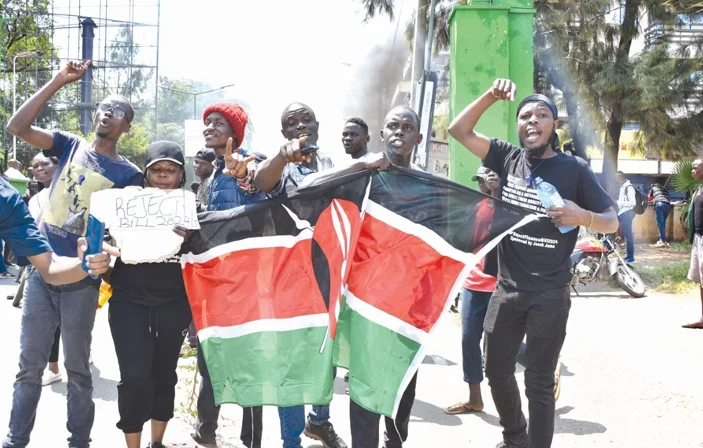Why we ought to listen to Gen-Zs’ voices
By Print, August 7, 2024Youth voices have been muzzled for far too long. We have been told to “respect our elders” and wait our turn. However, the world is changing, and the issues we face today – economic inequality, social injustice, corruption, and climate change – require an instant different approach or condemn us to ruin and poverty.
Since we are to inherit this world, it is our right – indeed, duty – to be heard now.
History has repeatedly demonstrated that when youth voices are united and amplified, they can shake the foundations of power and reshape the world by forcing governments to review policies and solve long-standing injustices.
Globally, from America’s Civil Rights Movement to the Stonewall demonstrations of 1969, which marked a watershed moment in the battle for LGBTQ+ rights, young people have utilised their voices and energies to question the existing quo and demand a better future.
Another star moment where recent youth movements have also proven to be pivotal in shaping government policies and driving social change is the Fridays for Future, led by Greta Thunberg, which mobilised millions of young people worldwide. They have greatly influenced discussions on environmental policies and raised awareness, particularly during the annual United Nations climate change conferences. The relentless youth pressure led global leaders and representatives of governments to pledge reductions in carbon emissions and investments in renewable energy.
Similarly, the 2019-2020 Hong Kong protests forced their government to withdraw a controversial extradition bill that would have allowed for the transfer of fugitives from Hong Kong to any jurisdiction leading to erosion of the city’s autonomy. This movement served as an example of the effectiveness of long-term, coordinated youth activism in opposing policies and promoting democratic values.
Furthermore, the March for Our Lives, organised by survivors of the Parkland school tragedy in Florida, revived the national discourse about gun regulation. Their efforts resulted in some US states implementing stricter gun controls and keeping the issue in the spotlight, illustrating the potential of youth-led initiatives to impact legislation.
Here at home, the recent protests against the Finance Bill 2024 highlight our frustration and unwillingness to accept economic inequalities and perceived injustices. The protests are not mere tantrums but a call for systemic change, representing a broader awakening for social justice across various areas.
Why does our voice matter? Because it is the voice of the future. We bring fresh perspectives, unencumbered by the cynicism and resignation that often accompany ‘older generations’. We are driven by a vision of a better world and we are willing to challenge the status quo to achieve it.
Nobel Prize laureate Malala Yousafzai once said, “When the whole world is silent, even one voice becomes powerful”. This sentiment exemplifies the essence of youth activism.
These actions represent a rising understanding of our ability to influence decision-making processes and shape our destiny. It also emphasises the value of inclusivity and the necessity to address the problems of all members of society, regardless of age, gender, or sexual orientation.
The activism that has been observed in America, Europe, and other regions of the world shows that when we band together to demand their rights, change can occur.
As Nelson Mandela once remarked, “The youth are the future of the world.” The future is here and it wants to be acknowledged. It is crucial that our country’s leadership listens to this voice, embraces its diversity, and empowers it to create a more just, equitable, and inclusive future for all Kenyans.
— The writer is an Integrated Communications Specialist and a DEI Champion
More Articles

